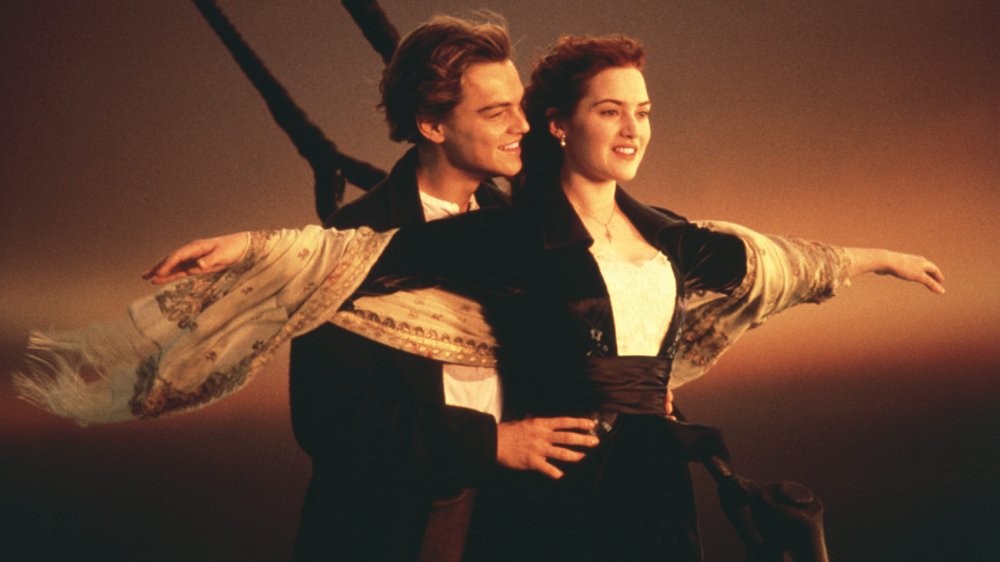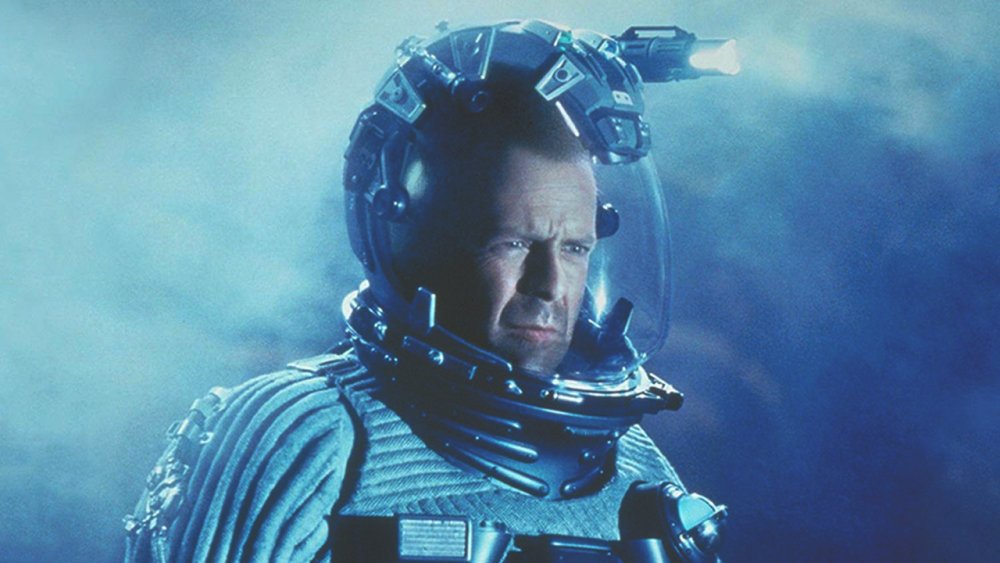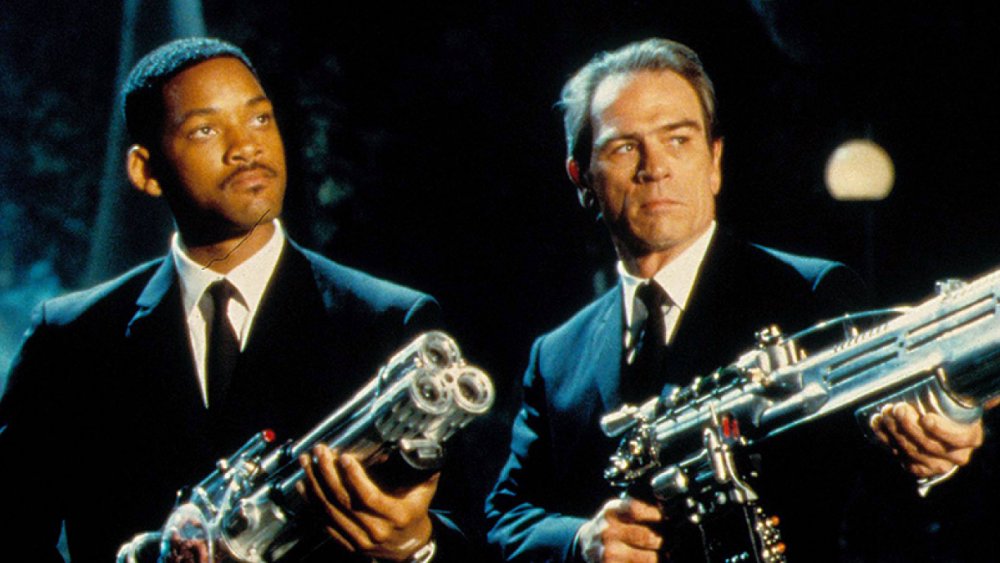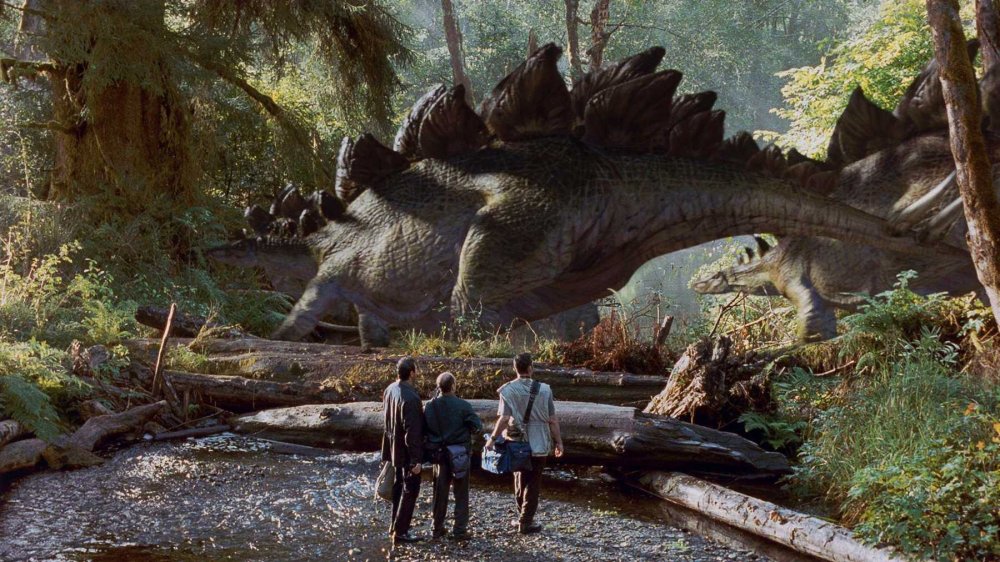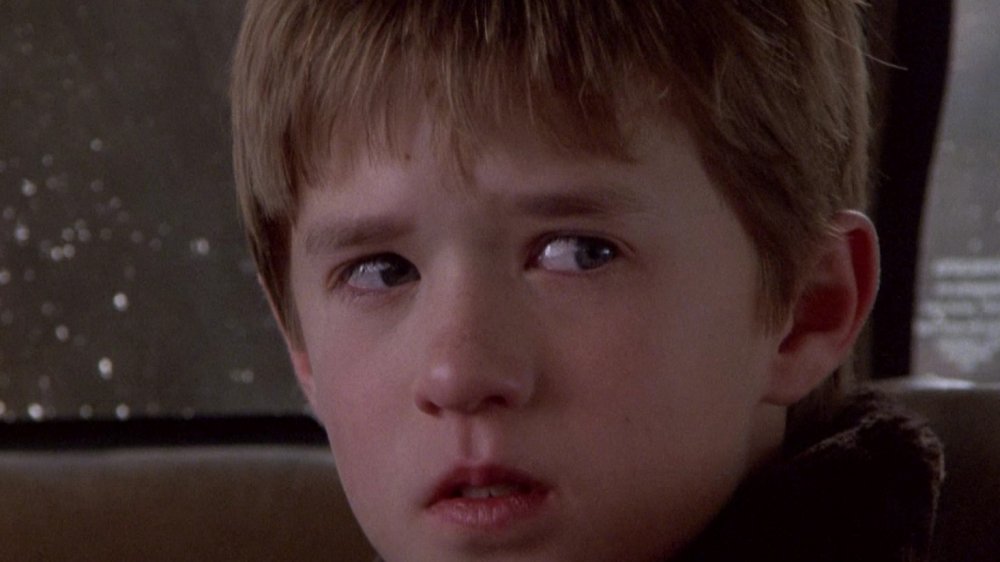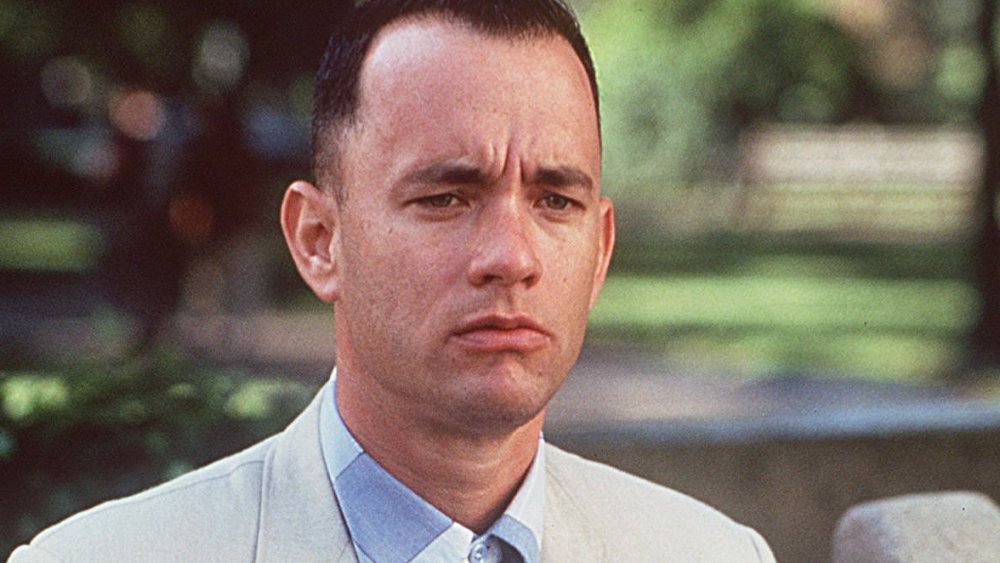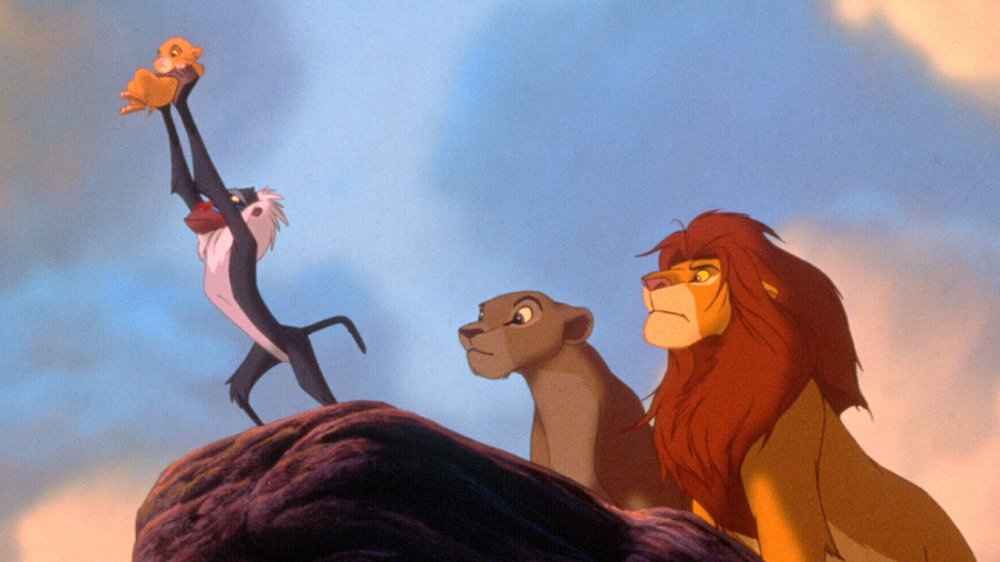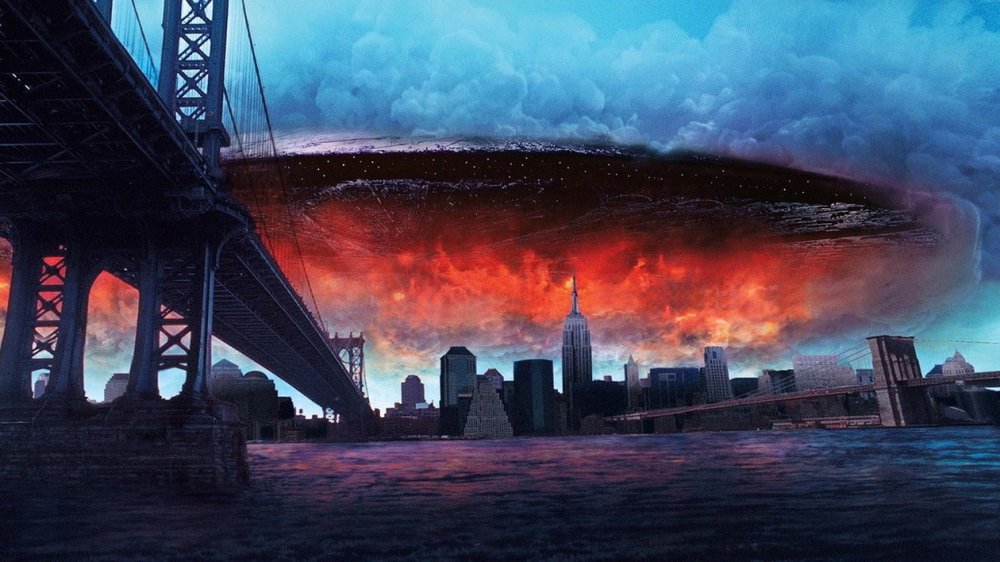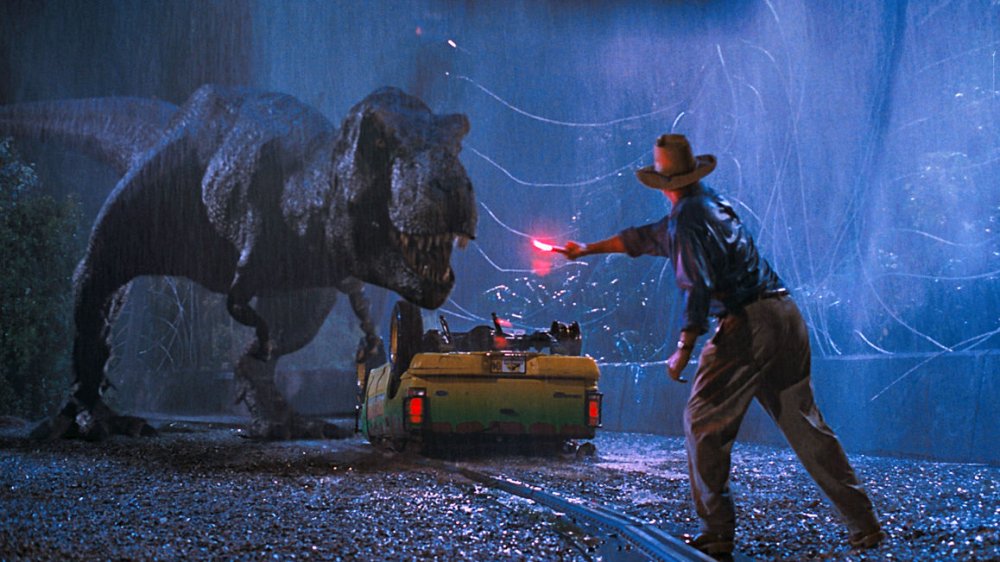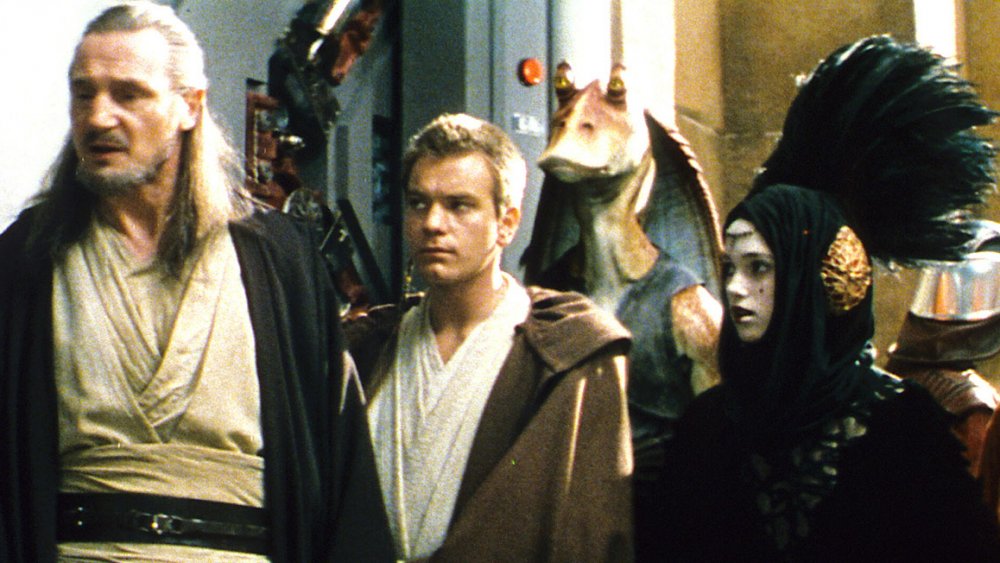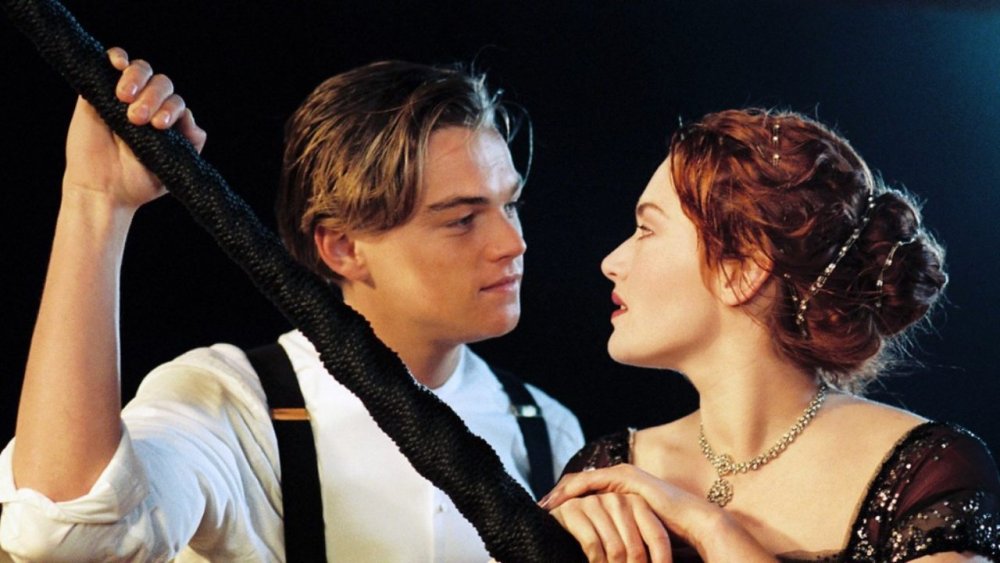The Highest Grossing Movies Of The '90s
Let's travel back in time. Specifically, let's head back to the 1990s. What a decade: Denim and turtlenecks were omnipresent, and so were turtlenecks. You had everything from grunge to "All-Star" to TLC playing on the radio.
And then, of course, there were movies.
Filmmakers like Julie Dash, Kevin Smith, Robert Rodriguez, and Cheryl Dunye helped define the birth of the modern American indie movie scene. College dorm rooms were changed forever with the introduction of the posters for Goodfellas and Pulp Fiction. As for the biggest titles of the decade? Well, they were basically still the types of big-budget, star-driven studio vehicles that have always dominated. That becomes apparent when looking over the decade's ten highest-grossing movies at the worldwide box office.
Thrillers, romantic dramas, period pieces — they're all represented here, and from a wide range of studios. Compare that to the 2010s, whose biggest movies tended to be big-budget blockbusters hailing from either Disney or Universal. Much like all-denim attire, such range in box office hits has gone out of style, at least for now, but that doesn't mean one can't indulge in some nostalgia for the biggest movies of this era. These are the highest grossing movies of the '90s.
Armageddon ($553.7 million)
Like most Michael Bay movies, Armageddon did not fare well with critics, as evidenced by its 38% rating on Rotten Tomatoes. While critics such as Roger Ebert decried Armageddon as "an assault on the eyes, the ears, the brain, common sense and the human desire to be entertained," it did prove a massive box office success. "Never mind what film critics tell you, or predictions that movie audiences are losing their appetites for vacuous, special-effects-laden thrill rides," wrote the New York Times in July 1998. "'Armageddon, the story of oil drillers who take time off to save Earth from a collision with an asteroid, is estimated to have brought in a solid $52.9 million at the box office since opening last Wednesday..."
After that domestic box office start, Armageddon eventually grossed $553.7 million. That put it handily above all other 1998 releases at the worldwide box office as well as more than $200 million ahead of fellow summer 1998 asteroid blockbuster Deep Impact. More than 20 years after its release, Armageddon's box office still stands tall. Among all Touchstone Pictures films, Armageddon remains the label's highest-grossing release worldwide as well as its only title to crack $500 million. Even after it was raked through the coals by critics, it's clear moviegoers didn't want to miss a thing when it came to Armageddon.
Men in Black ($589.3 million)
There was a time when Will Smith wasn't one of the biggest movie stars on the planet. When he was just a hit rapper and the star of the sitcom The Fresh Prince of Bel-Air, it wasn't a sure thing that Smith could headline hit movies. But after a prominent role in the hit ensemble piece Independence Day, Smith's success headlining Men in Black solidified him as a box office draw. This was evident from the start of Men in Black's run as it opened to a sizable $84.1 million domestically after its first five days of release. "If [Men in Black] continues to perform like this, it has the chance to be the biggest performer Columbia ever produced," Jeff Blake, then head of Columbia Pictures distribution, told the Los Angeles Times after the movie's explosive debut.
Eventually, this inaugural Men in Black adventure scored $589.3 million worldwide, the third-biggest haul for a 1997 release. To boot, Blake's prediction nearly came true — Men in Black ended up being Columbia's third-biggest movie ever adjusted for inflation. In the years since Men in Black hit Earth, a pair of sequels and a spinoff have all tried to replicate the box office success of the original film. None of them, though, have had the same level of success as the Men in Black feature that cemented Will Smith as a movie star.
The Lost World: Jurassic Park ($618.6 million)
Given the mammoth success of the original Jurassic Park in 1993, it was inevitable that its sequel, The Lost World: Jurassic Park, would also find box office glory. However, few were prepared for the film to be as successful as it was, particularly over its record-breaking Memorial Day weekend debut. "I couldn't have dreamed it," director Steven Spielberg told Variety after The Lost World took in $92.4 million domestically in its four days of release. "'The crowds for this one are virtually every age, every demographic, every color,” Howard Lichtman, executive vice president for Cineplex Odeon marketing, told the New York Times about The Lost World's wide appeal. ”What you have here is an incredible awareness and brand equity built up by the first movie. We all expected it to be an incredible blockbuster, but not this incredible.”
The Lost World would go on to gross $618.6 million worldwide, putting it above all but one other movie in 1997. Though a step down from the worldwide box office gross of its predecessor, The Lost World still ended up being a big hit. In fact, its box office performance was something no other subsequent Memorial Day opener has been able to replicate. "The Lost World broke the opening weekend record held by 1995's Batman Forever and remains the last Memorial Day weekend release to ever claim the opening weekend record," wrote ProBoxOffice in May 2020.
The Sixth Sense ($672.8 million)
Many of the films on this list are gargantuan blockbusters with enormous budgets and popular source material. And then there's The Sixth Sense. A $55 million budgeted thriller not based on any pre-existing source material, M. Night Shyamalan's second directorial effort became the quintessential sleeper hit when it premiered in theaters in August 1999. "The Sixth Sense didn't open big and quickly fall off, the economic model for basically every summer movie released these days," wrote The Atlantic in August 2019. "In each of its first five weekends, it made $26 million, then $25 million, then $23 million, then $20 million, and then $29 million (over Labor Day weekend)."
Those strong box office legs ensured that The Sixth Sense would end up as one of the biggest movies of 1999. Grossing $672.8 million worldwide, The Sixth Sense is still the highest-grossing movie of all time for Shyamalan as well as Bruce Willis, who starred opposite Haley Joel Osment. After all these years, The Sixth Sense's box office performance is still thoroughly remarkable, particularly since it's the kind of box office phenomenon that's rarely seen in the modern world. "The Sixth Sense was one of the last great word-of-mouth movies of the pre-Marvel, pre-blockbuster era, when movies were allowed to marinate in theaters and build an audience," reflected the Chicago Tribune.
Forrest Gump ($677.3 million)
"Life's like a box of chocolate," Forrest Gump (Tom Hanks) once opined. "You never know what you're gonna get." Even given the unexpected nature of life, though, nobody could have predicted just how well Forrest Gump would do. "The film was considered a 'tough sell'," observed the Los Angeles Times in July 1994. This supposed "tough sell," though, had nothing to worry about in terms of its eventual box office prospects. In fact, Forrest Gump ended up being one of the biggest movies of the decade.
"Gump ruled the box office in 1994," USA Today wrote in June 2019, looking back on the $330 million haul that outpaced even Disney's The Lion King at the yearly domestic box office in 1994. Despite being a story shaped by the history of America in the 20th century, Forrest Gump also proved to be a box office smash internationally. An additional $347.3 million overseas gave Forrest Gump a massive $677.3 million total worldwide. Per Box Office Mojo, Gump still remains the second-highest grossing live-action movie worldwide for Tom Hanks, only behind the $758.2 million gross of The Da Vinci Code. Forrest's mom was on to something. You really never know what you're gonna get in life, particularly when it comes to surprise hits like Forrest Gump.
The Lion King ($763.4 million)
In the modern world, where Frozen II can gross $1.44 billion worldwide, it's hard to imagine a time when Disney Animation movies struggled at the box office. But it was the truth in the 1980s, an era when Disney was releasing animated flops like The Black Cauldron that got outgrossed by lower-budgeted fare like The Care Bears Movie. Disney's once assured stranglehold on animated filmmaking was loosening. But a drastic comeback for Disney Animation was brewing. It all started with The Little Mermaid in 1989 and continued on with subsequent successes Beauty and the Beast and Aladdin, but Disney Animation's return to box office royalty was truly apparent in 1994 with the release of The Lion King.
"The Lion King stands poised to outpace all other Disney features at the box office, grossing $40.9 million in its first three days of wide release last weekend," observed Entertainment Weekly in July 1994 shortly after The Lion King premiered. "It's the studio's biggest opening tally ever, and the fourth-biggest in movie history (behind Jurassic Park, Batman Returns, and Batman)." Eventually, The Lion King amassed $763.4 million worldwide. In the process, Simba and friends proved the days of The Black Cauldron were long behind Disney Animation. In the words of The Lion King's own Rafiki, "The king has returned."
Independence Day ($817 million)
Aliens blowing up cities. Across the various Transformers, Avengers, and DC Comics movies, it's become a common sight in modern blockbusters. In 1996, though, it was a relatively fresh spectacle — and one that was defined by Roland Emmerich's Independence Day. The first of Emmerich's many megabudget disaster movies, Independence Day had no source material of any kind to lean back on. Considering no modern film has managed to top the worldwide annual box office without being based on a pre-existing entity since Avatar in 2009, being an original property sounds like it would be enough to ensure Independence Day would struggle financially.
However, Independence Day didn't just end up being profitable. It ended up being a box office juggernaut as powerful as an alien spaceship. "With more than $817.4 million in ticket sales worldwide," wrote Vox in July 2018. "Independence Day became the highest-grossing film of the year, beating out movies like Twister and Mission: Impossible to nab the spot. It was briefly the second highest-grossing film of all time until The Lost World: Jurassic Park came out in 1997..." The blockbuster game was changed for good. In the years since Independence Day's release, many alien invasion blockbusters, including follow-up Independence Day: Resurgence, have tried and failed to replicate its box office might. But it's just no use. Like the freshness of seeing aliens blowing up cities for the first time, Independence Day's box office success cannot be easily mimicked.
Jurassic Park ($914 million)
Any list dedicated to successful summer blockbusters will inevitably bring up Steven Spielberg. After all, the filmmaker created the genesis for summer blockbusters with the 1975 movie Jaws. Afterwards, Spielberg returned to spectacle-driven summertime fare with films like the three Indiana Jones installments. However, nothing Spielberg had made up to that point, or since, would be as big as his 1993 directorial effort Jurassic Park.
This dinosaur thriller didn't just open big in June 1993, it stuck around for weeks and weeks afterward. "It broke the opening weekend record with $50 million over its first Fri-Sun period... but dropped just 10% in its second weekend with another $38 million," recalled Forbes in an April 2013 piece. Jurassic Park's success wasn't just limited to its first two weekend, either. Eventually, the movie's box office stamina ensured that its worldwide haul surpassed all other movies. "Jurrasic Park has broken the worldwide box office record previously held by E.T. – The Extraterrestrial by selling more than $704 million in movie tickets during the past four months," reported UPI in October 1993.
With a final initial worldwide release gross of $914 million, Jurassic Park didn't just spawn a franchise that's still going to this day. It also went directly into the box office record books, reaffirming Spielberg's dominance over the summer blockbuster genre in the process.
The Phantom Menace ($924.3 million)
Steven Spielberg wasn't the only staple of 1970s blockbusters that reinforced their box office power in the 1990s. There was also Star Wars: Episode I – The Phantom Menace. The first Star Wars movie in 16 years, The Phantom Menace had a sizable box office legacy to live up to. After all, the last entry in the franchise, Return of the Jedi, "brought in $309.3 million at the box office in 1983. That would be $847.5 million today," as CBS News observed. The Phantom Menace had big shoes to fill financially, but it managed to fit into them snugly.
"The film made $200 million in just 13 days, shattering the record held by Fox's Independence Day, which took 21 days in 1996," wrote the New York Times in June 1999. In the weeks to come, it would end up amassing one of the largest box office grosses of all time. "It earned... $924m worldwide (on a $115m budget) sans any kind of IMAX or 3D upcharges," wrote Scott Mendelson of Forbes in September 2017, making it "the second-biggest global grosser (behind Titanic's $1.8 billion gross) ever at the time."
In the years since its release, The Phantom Menace has proven to be a controversial film that's spawned plenty of debate among Star Wars fans. What's indisputable, however, is the fact that The Phantom Menace turned out to be a mighty juggernaut at the worldwide box office.
Titanic ($1.8 billion)
Many of the films on this list adhered to a similar path: A massive record-breaking opening weekend in the summertime followed by an eventually gargantuan worldwide gross. Titanic arrived at the same destination, but the road it followed to get there was decidedly different.
After an opening weekend of $28.8 million in late December 1997, Titanic proceeded to stick around at the box office for months on end, topping the domestic box office for 15 weeks and captivating audiences the world over. The appeal for the film was universal. "Titanic has a pretty much across-the-board appeal," box office analyst Brian Fuson told the Chicago Tribune. "Its (PG-13) rating doesn't keep you from coming, and when you have Leonardo DiCaprio, he appeals to the youth market. You have a romantic story; I think that draws in more the female demographic. And you have James Cameron and his reputation as a director and all the publicity about the film being the most expensive film ever made."
All that buzz ensured that, after months of steady business, Titanic eventually pulled into harbor with an historic box office haul. Grossing $1.8 billion worldwide, Titanic charted an unorthodox box office path to become the biggest movie of the 1990s.
